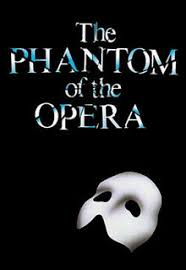This past Sunday, I had the amazing opportunity to see the music school’s performance of ‘Barber of Seville’. Â Next to ‘Marriage of Figaro’, I would say that ‘Barber of Seville’ is one of my favorite comedic operas. Â It is light hearted, short in terms of performance time, and full of great music.

My favorite things about the performance…
1) The costumes. Â The bedazzled pale pinks and yellows presented a delightful marriage of 1970s disco with seventeenth century Madrid. Â The soprano Rosina wore a beautiful leopard print and floral empire waist dress augmented by a fiery red floral cape with turqoise satin lining. Â And just about everyone wore shimmering opera wigs and red leggings. Â I have seen opera take some interesting turns in the way of set and costume design. Â I have seen flappers, 1950’s used car salesmen in checkered suits, as well as comedic characters in victorian full-body bathing costumes and flippers. Â But this rendition of Barber of Seville stayed true to opera form and upheld the opera hair and costume adage of ‘Go big or go home’.
2) The Overture. Â The opening overture alone was enough to get my mom and sister giggling next to me. Â If you haven’t seen this cartoon, then stop whatever you are doing and witness the greatest integration of high opera culture and lowbrow cartoons…
Bugs Bunny in ‘What’s Opera Doc?’
3) The arias. Â In addition to watching the animated brilliance of Bugs Bunny, you must listen to ‘Largo al Factotum’ if you are unfamiliar with you. Chances are, you have probably heard it countless times, and probably identify it as the ‘Figaro, Figaro’ song. Â I’ll admit that before the performance, I googled ‘factotum‘ since I had heard this aria countless times, but never understood what a factotum was.
4) The humor. Â Admittedly, opera humor is very different from the modern, deadpan, documentary-style humor you might see in ‘Office Space’ or ‘Modern Family’, but the physical comedy is never lacking. Â Laughing out loud at opera requires you to allow yourself to laugh at things that have no pop culture references and no swear words.
If you have never experienced opera, ‘Barber of Seville‘ is a great place to start. Â Opera buffa or ‘comic opera’ is the angel food cake of opera. It is light, fluffy, and full of funny hijinks that will help you unwind after a long day.
While I love opera seria or ‘serious opera’ it is not for the faint of heart.  It is often longer, denser, and much more intense than opera buffa.  Don’t get me wrong.  There are many great serious operas, but for the beginner or someone who isn’t sure about opera in general, take a listen to the overture from ‘Barber of Seville’ and revel in the accessible cadences of composer Giacchino Rossini.






